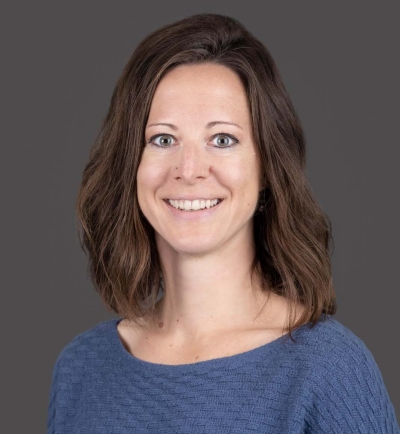Kalin Clark, PsyD, ABPP Shares Her Visiting Scholar Experience

Kalin Clark, PsyD, ABPP
On March 26-27, 2024, Kalin Clark, PsyD, ABPP, completed the Rome Foundation-DrossmanCare Visiting Scholar Program.
Kalin is a psychologist with 8 years of psychology experience and 1.5 years working with DGBI patients. She is an Assistant Professor of Medicine in the Division of Gastroenterology and Hepatology at Oregon Health and Science University, Portland, OR.
Her visit with Dr. Douglas Drossman, President Emeritus and CEO of the Rome Foundation, included advanced training in communication skills, observation of patients seen in clinic with DGBI, and neuromodulator treatment methods for patients with DGBI.
The Visiting Scholar Program is a great opportunity for clinicians and researchers to engage with key leaders, including Rome Foundation Board members and other international experts, to learn not only about DGBI diagnosis and treatment but also about advanced communication skills and targeted research methods.
This program is open to clinicians and scientists in gastroenterology, primary care, psychologists, advanced practice providers (NP/PA), and dietitians. The attendees usually spend two to three days on-site or longer by arrangement. This program is critical to help develop and inspire the next generation of providers to become skilled communicators and exceptional clinicians treating patients with DGBI.
When asked about her experience, Katlin answered these program evaluation questions:
Please describe in a few sentences what was most meaningful to you and why.
It was meaningful to get to see Dr. Drossman in action and to see the skills he describes in his publications (books and peer-reviewed articles) applied to patient care in real time. It was also very helpful to hear him discuss case conceptualizations.
I think this is a great opportunity not only for psychologists but also for all medical learners. I think so many of the providers I work with could benefit from this [training].
Please describe the areas you found most helpful.
It was very helpful to observe Dr. Drossman’s final portion of the initial evaluation, during which he explained the treatment plan, brain-gut connection, and how neuromodulators could be helpful to the patient.
I also learned a lot more about bloating/distention, for which I’m starting to get more referrals.
Please describe what else you would have liked to have seen.
Time permitting, I would have enjoyed the opportunity to hear about even more types of cases.
For more information regarding the Rome Foundation Visiting Scholar Program, contact Michelle Berry at mberry@theromefoundation.org.
 5826 Fayetteville Rd., Suite 201 Durham, NC 27713
5826 Fayetteville Rd., Suite 201 Durham, NC 27713  (919) 246-5611
(919) 246-5611 